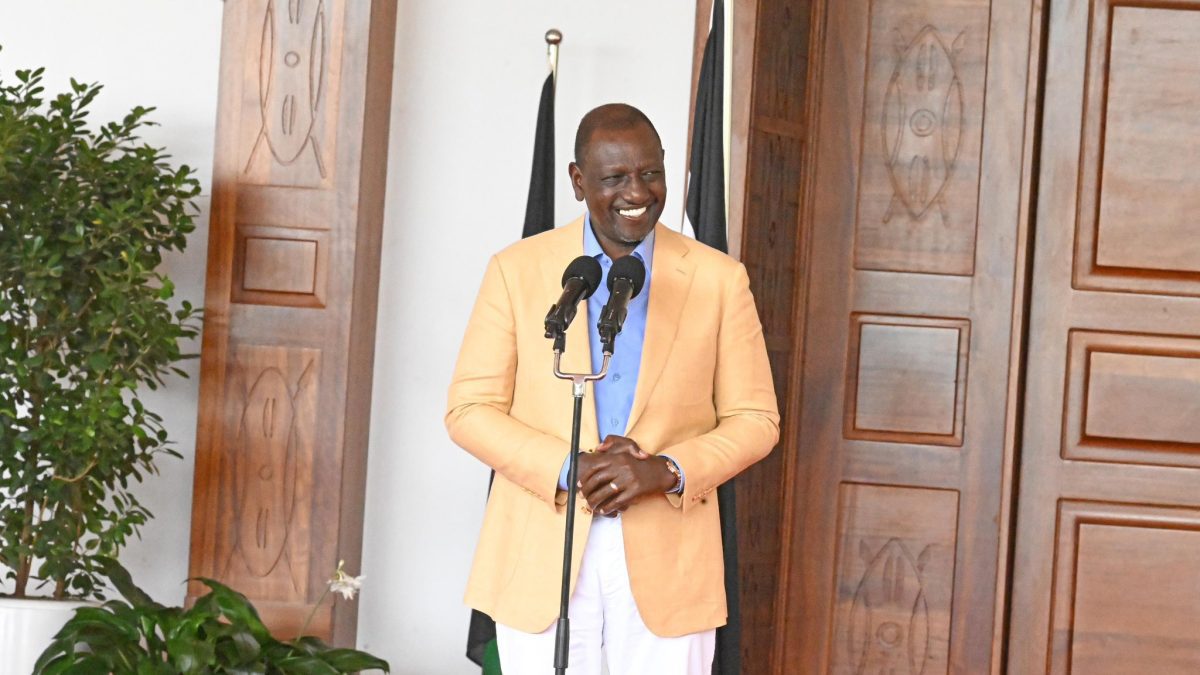-
 RUTO APPLAUDS POLICE EFFORTS IN MAINTAINING PEACE
RUTO APPLAUDS POLICE EFFORTS IN MAINTAINING PEACE
-
 Netanyahu Accepts Trump-Brokered Ceasefire Deal
Netanyahu Accepts Trump-Brokered Ceasefire Deal
-
 ACTIVIST MORARA KEBASO QUITS POLITICS
ACTIVIST MORARA KEBASO QUITS POLITICS
-
 KENYA AND CHINA FINALIZE LOAN DEAL
KENYA AND CHINA FINALIZE LOAN DEAL
-
 Officers, Civilians Charged in Death of Blogger Albert Ojwang in Police Custody
Officers, Civilians Charged in Death of Blogger Albert Ojwang in Police Custody
-
 Missile Blasts Over Doha After Qatar Shuts Airspace Amid Iran–US Escalation
Missile Blasts Over Doha After Qatar Shuts Airspace Amid Iran–US Escalation
-
 KRA ANNOUNCES NEW CHANGES TO PAYE FILING SYSTEM
KRA ANNOUNCES NEW CHANGES TO PAYE FILING SYSTEM
-
 Eric Mutinda, MMU Student Accused of Girlfriend's Murder, Declared Unfit to Stand Trial
Eric Mutinda, MMU Student Accused of Girlfriend's Murder, Declared Unfit to Stand Trial
-
 PASSARIS OFFERS KSH100K REWARD FOR INFORMATION ON ABIGAEL’S MURDER
PASSARIS OFFERS KSH100K REWARD FOR INFORMATION ON ABIGAEL’S MURDER
INSIDE KENYA'S PRISON JOBS RACKET: BRIBES, PROMISES, AND BROKEN SYSTEMS

In the heart of Kenya’s public service recruitment lies a festering scandal that is quietly crushing dreams and breeding corruption. Young Kenyans are reportedly paying between KSh 500,000 and 1 million to secure positions in the Kenya Prisons Service (KPS), in what appears to be an entrenched recruitment-for-bribe network.
"We were told to pay or forget about it"
James (not his real name), a 27-year-old from Kakamega, says he was asked to pay KSh 700,000 by a middleman with connections inside the Prisons Department. "He said it was the only way. Without money, you have no chance," James recalls. "I sold my motorbike and added money from my family."
His story is not unique. Interviews with five other youths from Bungoma, Kisii, and Nairobi reveal similar experiences. Each says they were either approached by brokers or actively sought out ways to "buy" their way into a prison officer job after multiple failed attempts via the formal recruitment process.
A System of Desperation
The Kenya Prisons Service, under the Ministry of Interior, is seen as a stable employer, especially for those without advanced education. A prison constable’s job comes with a steady salary, housing, and pension—a dream for many unemployed youths.
But the official recruitment, often announced in national newspapers and public forums, has reportedly become a smokescreen. "It’s a formality. If you have money, you get in. If you don’t, stay home," said a former senior officer, who requested anonymity.
The Brokers and Middlemen
The bribery ecosystem thrives on networks of brokers, often former officers, relatives of insiders, or rogue officials themselves. According to sources, these brokers demand upfront payments, sometimes in instalments, and claim to have guaranteed access to slots in upcoming intakes.
"They operate in WhatsApp groups, local bars, even churches," said one source. "They know who is desperate."
Institutional Blind Eye?
Questions now swirl around the role of senior prison officials and the Ministry of Interior. Are they unaware, complicit, or overwhelmed? Attempts to get official comment from Kenya Prisons Service and the Ministry have so far gone unanswered.
An officer within the Ethics and Anti-Corruption Commission (EACC), speaking off the record, confirmed they are aware of such complaints but cited challenges in obtaining hard evidence. "It’s difficult when victims are unwilling to testify, fearing they’ll lose everything or face retaliation."
Consequences of Corruption
The impact is far-reaching:
Unqualified recruits may compromise security and efficiency within prisons.
Deserving candidates are locked out, fueling resentment and hopelessness.
A culture of impunity is normalized, weakening public trust in institutions.
What Next?
Civil society groups are now calling for a full audit of the most recent KPS recruitment exercises. Transparency International Kenya has urged whistleblowers to come forward under , while the Public Service Commission has promised to review complaints lodged through official channels.
Until action is taken, young Kenyans like James continue to gamble their future on a broken promise.


Comments (0)
No comments yet. Be the first to comment!